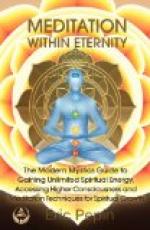Mohammed expressed this doctrine of non-resistance thus:
“Turn away evil by that which is better; and lo, he, between whom and thyself was enmity, shall become as though he were a warm friend.”
“But none is endowed with this, except those who have been patient and none is endowed with it, except he who is greatly favored.”
Mohammed meant by these words “he who is greatly favored,” to explain that in order to see the wisdom and the glory of such conduct, one must have attained to spiritual consciousness. This was especially a new doctrine to the people to whom he was preaching, because it was considered cowardice to fail to resent a blow. Pride of family and birth was the strongest trait in the Arab nature.
In furtherance of this doing good to others, we find these words: “If ye are greeted with a greeting, then greet ye with a better greeting, or at least return it; verily. God taketh count of these things. If there be any under a difficulty wait until it be easy; but if ye remit it as alms, it will be better for you.”
Mohammed here referred to debtors and creditors; as he was talking to traders, merchants, men who were constantly buying and selling, this admonition was in line with his teaching, which was to “do unto others that which you would that they do unto you.”
In further compliance with his doctrine of doing good for good’s sake Mohammed said: “If ye manifest alms, good will it be; but if ye conceal them and give them to the poor, it will be better for you; and it will expiate some of your sins.”
Alms-giving, as an ostentatious display among church members, was here given its rightful place. It is well and good to give openly to organizations, but it is better to give to individuals who need it, secretly and quietly to give, without hope, or expectation, or desire for thanks, or for reward, to give for the love of giving, for the sole wish to make others happy. This desire to bestow upon others the happiness which has come to them, is a characteristic of the cosmic conscious man or woman.
It is comforting to know that Mohammed, like Buddha and The Man of Sorrows; and like Sri Ramakrishna, the saint of India, at length attained unto that peaceful calm that comes to one who has found the way of Illumination. It is doubtless impossible for the merely sense-conscious person to form any adequate idea of the inward urge; the agony of doubts and questionings; the imperative necessity such a one feels, to KNOW.
The sense-conscious person reads of the lives of these men and wonders why they could not be happy with the things of the world. The temptation that we are told came to Jesus in the garden, is typical of the state of transition from sense-consciousness to cosmic consciousness. The sense-conscious person regards the things of the senses as important. He is actuated by ambition or self-seeking or by love




